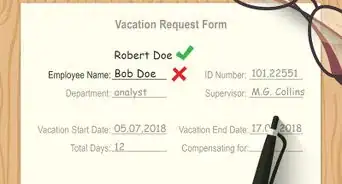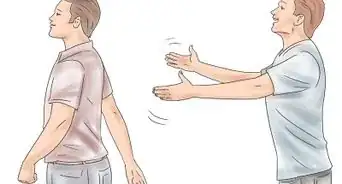X
wikiHow is a “wiki,” similar to Wikipedia, which means that many of our articles are co-written by multiple authors. To create this article, 43 people, some anonymous, worked to edit and improve it over time.
This article has been viewed 160,562 times.
Learn more...
Being a well-rounded teenager is a balancing act. Imagine you're in a circus and riding a unicycle. The ringmaster throws you one ball, and then two, then three and four, which you're expected to juggle all at once — while riding a unicycle. It's tough stuff, which is why so many people look for guidance during their teenage years. If you want to take a hold of your life again and be the person you want to be, here's some guidance.
Steps
Method 1
Method 1 of 7:
Doing Well in School
-
1Pay attention in class and get good grades. School may seem boring, but it is important to try to do well. Good grades will give you more options in the future. Make sure to jot down any homework or test deadlines when you get them so that you don't forget to complete them and prioritize your study deadlines. When it is recommended to write notes from your classes, write notes, as this is one of the best ways for informing your revision before writing essays and sitting exams.
- If there's something you don't understand, ask somebody! Read it through carefully again, and then if you still don't get it, ask a friend or a teacher. Despite what people might imply, there is never such a thing as a dumb question; it is better to get clarity than to stew in the dark, unenlightened.
- When you get home from school, do a quick recap on what you learned that day. This will help you for when you need to revise it as it cements the day's learning and is much easier than cramming at the last minute. And while it may not seem like it now, learning-as-you-go creates long-term remembering whereas cramming trains only short-term memory and prevents you from truly learning and having access to that information in the future.
-
2Do your homework. This sounds like a no-brainer, but doing your homework effectively doesn't just mean sloppily writing something down and handing it in. Do your best on every assignment, and as already stated, ask questions when you don't understand something. Plan a homework schedule so that you don't get yourself into a time crunch.Advertisement
-
3Build good relationships with your teachers. This is especially important in high school because you may need to ask a few of your favorite teachers to write recommendations for your college applications. The better they know you, the better those recommendations will be. But more than this, these people can serve as mentors and guides as you move through high school and you can learn much from their knowledge and experience.
Advertisement
Method 2
Method 2 of 7:
Spending Time With Friends
-
1Take your time to find the right friends. The best friends are friends that you feel comfortable goofing off with and being serious with. You shouldn't have to change your personality to please them. Good friends can be hard to find, so remember that it's not uncommon to change your group of friends several times during your teenage years.
-
2Watch out for peer pressure. Many people experiment with a lot of things in high school and middle school, and it is important to learn how to say no to anything you are not comfortable with. Listen to your instincts and do what's right.
- Sometimes people pretend to be friends just to get you to do something they're unwilling to do themselves, such as steal things, buy drugs or cheat. None of these things are worth founding a relationship on, and if you're caught, it's you who gets into trouble and you'll find the so-called friendship fails instantly.
Advertisement
Method 3
Method 3 of 7:
Spending Time With Family
-
1Build a relationship with your parents. Although it often seems as though they don't take you seriously, letting your parents know that they can trust you will usually lead to you having more freedom.
- Recognize that this is a hard time for your parents. Remember that they're not out to make your life miserable—while you feel like you should be treated like an adult, your parents are struggling with the realization that you're not their baby anymore. They are also likely to be struggling with working, paying a mortgage, raising your siblings as well as you and doing their best to be good parents. It's not an easy job, but you can make it easier by being understanding and friendly.
-
2Get to know your siblings. Your little sister might seem like the most annoying person in the world now, but you're likely going to spend the rest of your life with her. Plus, being at home will be much more fun when every night is like a sleepover with your best friend.
-
3Help out around the house. Some chores take less than five minutes to complete when many hands are applied to them, and your parents and siblings will be in a much better mood if there is one less thing for them to do. You can even morph chores into a fun way to spend time with your family by turning them into a contest. Try blasting music that everyone enjoys, or having a nice conversation while you work and setting time limits for completion. If you have winners for properly completed chores, prizes can include things like choosing the DVD or movie to watch as a family or choosing what gets cooked for dinner for that evening.
- When asked to do a task, do it. This can save many arguments around the house, and when the chores are done you're free to do whatever you want! Arguing can take up a lot of time and creates emotional friction that nobody wants to feel.
Advertisement
Method 4
Method 4 of 7:
Spending Time With Yourself
-
1Schedule some me-time. Life can get pretty busy as a teenager, but it's important that you spend time with yourself as well.
-
2Figure out your hobbies and interests. Find something you love and make sure you do it regularly. This will allow you to be refreshed and happy when it comes to other parts of your life. Don't be surprised if your interests change in the space of months or years; that's natural while you're still working out what you enjoy most but don't try too hard. Just follow your interests to see where they lead and remain open-minded about new possibilities too.
-
3Stay happy. Depression is a very common condition that tends to show up in your preteen or teenage years. Seek professional help if you think you may be depressed. You may or may not get family support to help you through (depending on your family circumstances) but don't let a lack of such support stop you from caring for your mental health; there is always someone who can help you sort out depressive or negative feelings and problems and the earlier you are treated, the easier it will be to recover and gain both confidence and resilience for a happier future.
- Allow yourself to goof off from time to time. Always trying to be serious or focused can make you feel unhappy. Give yourself space to do fun things regularly to balance your studies, activities, and relationships.
-
4Listen to music. This can help you relax and relieve some of the stress from a busy day at school or with friends. Music is a good way of expressing yourself too – if you don't already know how to play an instrument, consider learning one now, such as the guitar, piano or keyboard. And don't forget that your voice is an instrument too!
-
5Learn ways to enjoy solitude. Learning to enjoy time spent alone is an important part of realizing that you're whole without another person. This can help to prevent the development of co-dependent relationships or to seek to make another person the source of your life's happiness. Solitude also helps you to learn more about what makes you tick as a person and what your life's values are. Some ways to find effective and enjoyable solitude include meditation, walks by yourself, writing in a journal and spending time with pets.
Advertisement
Method 5
Method 5 of 7:
Taking Care of Yourself
-
1Take care of yourself. Wash your face, take regular showers, eat home cooked meals instead of ready-made ones, etc.
- Always make sure to brush your teeth 2-3 times a day. This will keep them clean and your breath smelling good.
-
2Exercise. You don't have to go crazy, but a little bit of physical activity each day, such as biking to school, will help keep both your body and mind healthy.
-
3Eat well. Eating too much or too little will make it hard to focus and cause you to do poorly in other areas.
-
4Get enough sleep. Having about 9 hours sleep is the best thing to be doing, even on weekends; it will prepare you for school and make yourself feel better the following morning. Try to schedule each week so that you get your homework done at a reasonable hour. If you know you're going to have a lot on a given night, talk to your teacher about getting an extension, or even better, handing it in early. This will make your body more aware of what's going on, and will make any dreadful bags under your eyes disappear!
-
5Wake up on time. Make sure you have enough time to have some breakfast, wash your face, have a shower if you need to, etc. before school starts.
- Packing your bag and hanging up your outfit/uniform the night before will make everything a lot faster and more organized. Don't forget to lay out a clean pair of socks, underwear and a pair of shoes also!
Advertisement
Method 6
Method 6 of 7:
Joining an Extracurricular Activity
-
1Join Boy Scouts/Girl Scouts/4-H or similar programs and stick with it. These programs will give you a sense of community and teach you life skills. They also open up a range of opportunities that might not be offered at school or through your social networks, such as public speaking, drama, life or outdoor skills, etc.
-
2Join a club. School clubs are a great way get involved without sacrificing things you're passionate about. They can also help you work out what sorts of hobbies and interests you enjoy most. Try a few over your teen years and don't be afraid to admit when one doesn't work for you and to keep looking.
-
3Try for a sports team. This will teach you how to work in a team, and you will become good friends with your team members. Alternatively, if team sports don't do it for you, at least find a sport that interests you be it athletics, triathlons, swimming, tennis, cycling or other more individual but still excellent sports. Even individual sports have team elements when you play on behalf of your school or region.
- Martial arts can be another excellent outlet for physical and mental development. They are also a good way of developing self-discipline. While it's a good idea to begin in one martial sport, it is possible to do more than one once you're proficient in your first martial art.
-
4Consider volunteering. Another extracurricular activity that benefits both you and others is volunteering. Choose something you're passionate about and set regular times to help out. It might be something that fits in with a sport or activity you love too, so it doesn't have to be about over-stretching yourself.
Advertisement
Warnings
- If you have difficulty with schoolwork, speak to the relevant teachers and ask for help.⧼thumbs_response⧽
- If you experience negative feelings, or you're subjected to abuse (emotional, physical or verbal), seek help from someone like a teacher, parent, friend, counselor or another neutral party. If there are problems at home, seek help from a counselor or someone else you trust outside of the home. Don't suffer in silence; nobody deserves to be at the center of constant harm.⧼thumbs_response⧽
Advertisement
About This Article
Advertisement




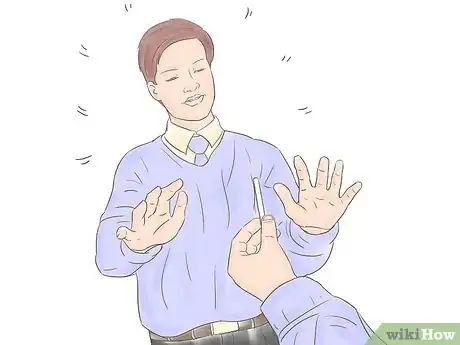

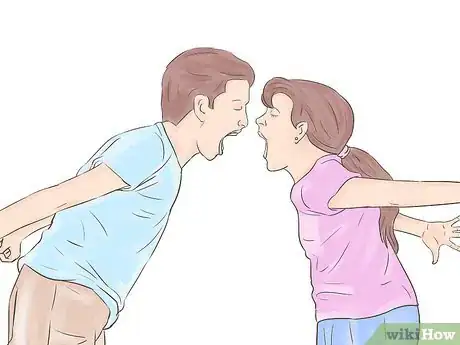






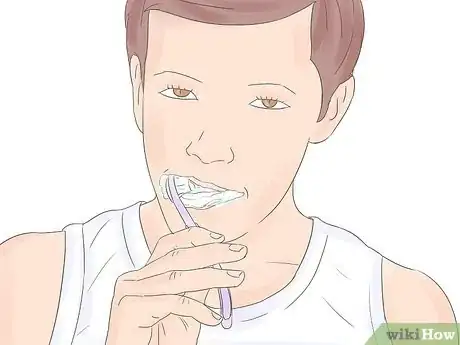


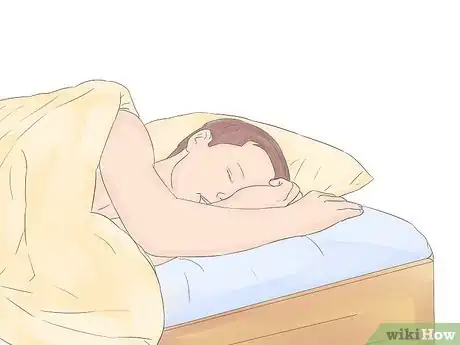











-Step-17-Version-3.webp)



